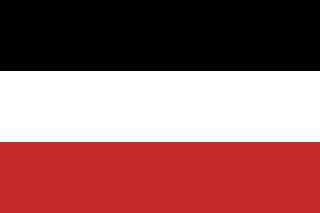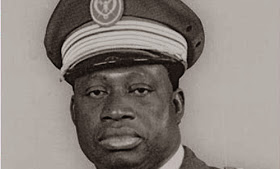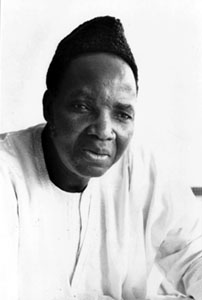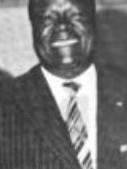
Burkina Faso is a landlocked country in West Africa with an area of 274,223 km2 (105,878 sq mi), bordered by Mali to the northwest, Niger to the northeast, Benin to the southeast, Togo and Ghana to the south, and Ivory Coast to the southwest. As of 2021, the country had an estimated population of 20,321,378. Previously called Republic of Upper Volta (1958–1984), it was renamed Burkina Faso by President Thomas Sankara. Its citizens are known as Burkinabè, and its capital and largest city is Ouagadougou.

The Burkina Faso Armed Forces is the term used for the national military of Burkina Faso. The service branches of the armed forces include its Army, Air Force, National Gendarmerie and People's Militia. Being a landlocked country, Burkina Faso has no navy.

The history of Burkina Faso includes the history of various kingdoms within the country, such as the Mossi kingdoms, as well as the later French colonisation of the territory and its independence as the Republic of Upper Volta in 1960.

The Republic of Upper Volta was a landlocked West African country established on 11 December 1958 as a self-governing state within the French Community. Before becoming autonomous, it had been part of the French Union as the French Upper Volta. On 5 August 1960, it gained full independence from France. On 4 August 1984, it changed its name to Burkina Faso.

Saye Zerbo was a Burkinabé military officer who was the third President of the Republic of Upper Volta from 25 November 1980 until 7 November 1982.

Aboubakar Sangoulé Lamizana was an Upper Voltese military officer who served as the President of Upper Volta, in power from 3 January 1966, to 25 November 1980. He held the additional position of Prime Minister from 8 February 1974, to 7 July 1978.

The African Democratic Rally is a political party in Burkina Faso. It was originally known as the Voltaic Democratic Union-African Democratic Rally (UDV-RDA) and was formed in 1957 as the Voltaic section of the African Democratic Rally (RDA).

Joseph Ki-Zerbo was a Burkinabé historian, politician and writer. He is recognized as one of Africa's foremost thinkers.
Joseph Issoufou Conombo served as Prime Minister of Upper Volta from 7 July 1978 to 25 November 1980. Born in the department of Kombissiri, he attended medical school in Dakar, Senegal, then served in the French forces during World War II.

Gérard Kango Ouédraogo was a Burkinabé statesman and diplomat who served as Prime Minister of Upper Volta from 13 February 1971 to 8 February 1974. He was subsequently President of the National Assembly of Upper Volta from October 1978 to November 25, 1980.
Major Jean-Baptiste Boukary Lingani was an officer of Army of the Republic of Upper Volta executed on September 19, 1989 along with Henri Zongo by Blaise Compaoré who accused them of plotting a coup. Lingani was set by Laurent Sédego, Gilbert Diendéré, Hermann Yaméogo, Issa Tiendrébeogo and his cousin Alain Ouilma of national safety department.

Burkina Faso–Taiwan relations referred to the historical relationship between the Republic of China (Taiwan) and Burkina Faso. Taiwan had an embassy in Ouagadougou, and Burkina Faso had an embassy in Taipei. In May 2018, Burkina Faso switched to recognize the People's Republic of China, thus ending diplomatic ties with Taiwan. The last ambassador of Burkina Faso to Taiwan, appointed in August 2017, was Aminata Sana Congo.
The 1966 Upper Voltan coup d'état was an event which took place on 3 January 1966 in the Republic of Upper Volta, when following large-scale popular unrest the military intervened against the government, forced President Maurice Yaméogo to resign, and replaced him with Lieutenant Colonel Sangoulé Lamizana. Lamizana would go on to rule until 1980, when yet another military coup d'état overthrew him. The 1966 coup would prove to be the first in a long line of Upper Voltan and later Burkinabé coups, both failed and successful such, and marked the beginning of half a century of military rule.
The 1980 Upper Voltan coup d'état took place on 25 November 1980 in the Republic of Upper Volta. Following a long period of drought, famine, popular unrest and labour strikes, Colonel Saye Zerbo overthrew President Sangoulé Lamizana, another military leader. Zerbo himself would be overthrown only two years later.
The 1983 Upper Voltan coup d'état attempt was an event that took place on 28 February 1983, in the Republic of Upper Volta, just a few months after a previous coup d'état on 7 November 1982 by radical elements of the army against the regime of Colonel Saye Zerbo, who himself came to power in a 1980 coup against Major General Sangoulé Lamizana.
The 1982 Upper Voltan coup d'état took place in the Republic of Upper Volta on 7 November 1982. The coup, led by the little-known Colonel Gabriel Yoryan Somé and a slew of other junior officers within the military, many of them political radicals, overthrew the regime of Colonel Saye Zerbo. Zerbo had previously taken power just under two years prior to his own downfall.

Burkina Faso and Palestine relations refers to the current and historical relationship between Palestine and Burkina Faso. Neither state maintains an embassy in the capital of the other, but the Palestine Liberation Organization (PLO) has a non-resident representative to the Burkinabé government.

A coup d'état was launched in Burkina Faso on 23 January 2022. Gunfire erupted in front of the presidential residence in the Burkinabé capital Ouagadougou and several military barracks around the city. Soldiers were reported to have seized control of the military base in the capital. The government denied there was an active coup in the country. Several hours later, President Roch Marc Christian Kaboré was reported to have been detained by the soldiers at the military camp in the capital. On 24 January, the military announced on television that Kaboré had been deposed from his position as president. After the announcement, the military declared that the parliament, government and constitution had been dissolved. The coup d'état was led by military officer Paul-Henri Sandaogo Damiba.
The 1974 Upper Voltan coup d'état was a bloodless military coup which took place in the Republic of Upper Volta on 8 February 1974.










